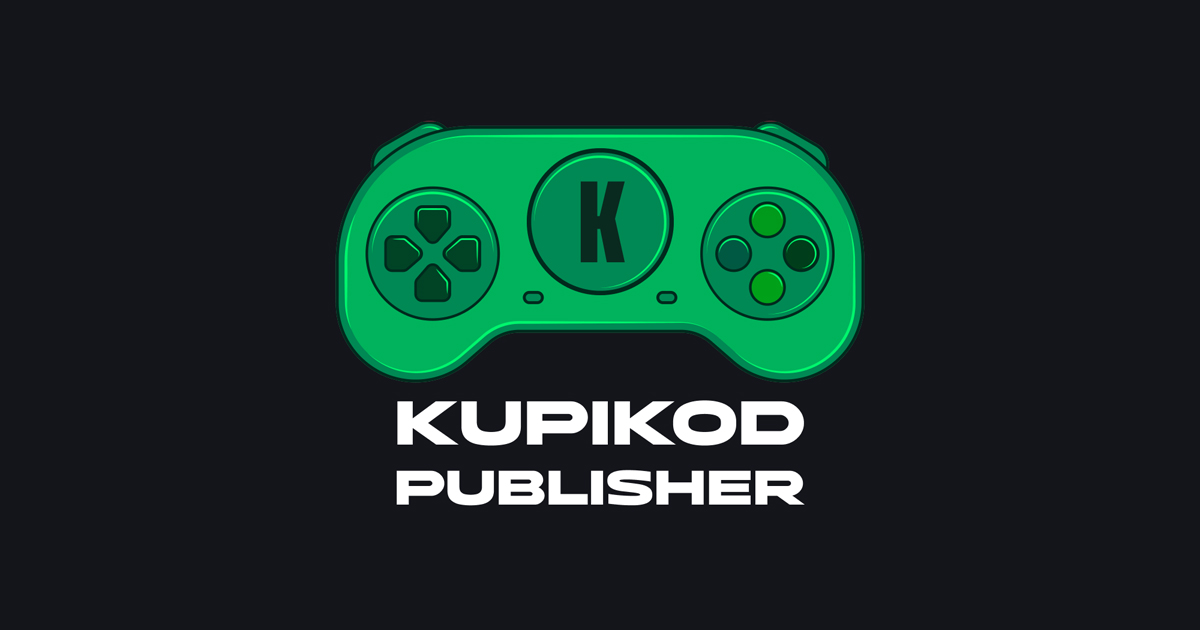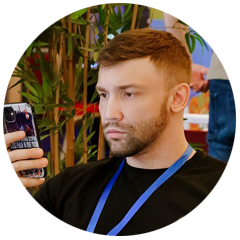"We are looking for unique projects with a clear audience," Kupikod on their publishing initiative
In September of last year, the Kupikod platform announced plans to invest in development and publishing. Six months later, the App2Top editorial team spoke with Nikolay Borovikov, who is responsible for this direction in the company, to discuss what has been happening within this initiative.
Alexander Semenov, App2Top: Hello Nikolay! It's been about six months since you announced the launch of Kupikod Publishing. How is it going?
Nikolay Borovikov
Nikolay Borovikov, Kupikod: Hello! Yes, indeed, on the iXBT.games stream, we announced the launch of Kupikod Publishing with a plan to hold a contest for developers. Unfortunately, the iXBT.games team has stopped communicating, so we decided to proceed independently.
We are currently at the stage of testing models and strategies: we've selected a few interesting projects and have begun working on their promotion. We are in an active phase, carefully monitoring the results.
In preparing for publishing, what challenges and problems did you encounter that you didn't anticipate?
Nikolay: The first and foremost problem is, of course, the financial model. To be frank, without deep experience in publishing, I initially created a very detailed model with projections for the next 10 years. We then thoroughly examined it and realized it was too ambitious for a start. We had to cut and optimize the budget, reducing some expenses initially allocated for complete game support: porting, large-scale advertising, localization into several languages. Eventually, we focused on the first step: advertising and effective promotion to test the model in the field.
What do you think about competition in the publishing field today? Is there any, when it comes to competing for solid projects?
Nikolay: In Russia, there is no clear competition yet. Our gaming industry market is just beginning to ramp up, especially from a systematic funding perspective. There are a few major publishers who are quite selective about projects. But overall, there are far more projects than publishers right now, so almost in every niche, you can find a real gem.
Publishing is not just a "department of the company"; it's a large independent direction. This is exactly how we see our future in Kupikod, creating a separate ecosystem capable of competing on the international stage.
You had a plan to grant a million rubles. Have you issued it? If yes, to whom?
Nikolay: No, we haven't issued it yet. This grant was supposed to be supported by iXBT.games, but since they have disappeared (hopefully, they are doing well), we are now independently thinking about how and to whom to best issue this grant. Most likely, we will decide soon and announce it additionally.
We recently had a big discussion in the comments that $250,000 for a game is not much, and here it's about just a million rubles. What do you think about this? And can a million rubles actually help someone significantly?
Nikolay: Look, it all depends on the scale of the project. There are indie projects, there are AA, AAA, and, thanks to the folks at Ubisoft, now even AAAA. If we are talking about AAA and AAAA, then $250,000 is, of course, a drop in the bucket, considering the level of development and marketing costs. But if we're talking about indie games, then $250,000 is about 20 million rubles, and with that kind of money, you can quite feasibly release a good and complete small project. Personally, I've seen many promising games where the total budget was around 5 million rubles. It's all individual: for someone, a million rubles can help finish a demo and attract an investor or publisher, while for others, it might not be enough even for half of the development. It all depends on the specific project.
How extensive has your experience with developers been so far?
Nikolay: Extremely extensive. I personally selected the first pilot projects, and I communicate with all developers directly. In game development, specifically in PR and marketing, I've been working for over nine years, more than five years in business development (BDO), and I also own my own studio DMK. So, I communicate with developers in their language and easily find common ground on almost any issue. For example, I have a major project of my own—The Padrino game, which I currently can't publish myself due to my involvement in Kupikod Publishing. So, I understand the developers' problems and the intricacies of publishing from the inside.
What do they usually ask for?
Nikolay: They usually ask for everything at once. The most obvious is money. The problem is that many teams come with just a cool idea without understanding the financial model and the market. The second most popular request is traffic and advertising. The third is help with finding specialists: game designers, marketers, PR managers, and programmers.
What are their usual financial expectations?
Nikolay: If we're talking about indie teams, the average request is 2-5 million rubles for a year of development. More serious and ambitious projects might request 50-60 million rubles, and that's just for creating a demo version.
What communication or expectation issues do modern game teams usually have?
Nikolay: Most developers don't understand that a publisher is not a venture fund investing in a promising idea.
Of course, I first look at the idea and the team, but then I assess the financial aspect. This is business, so it's important for me to understand: have you identified your target audience, what projects have you analyzed for sales forecasts. If you immediately position yourself with top projects without having a similar budget, I will decline because it's unrealistic. I look at the financial calculations: what price you plan to sell, whether you've considered the Steam commission, and how much we will actually earn from it. Then I consult with game designers and programmers: I check timelines, mechanics, and possibilities for implementation. The main problem is either they come with just an idea, which is immediately a fail, or with a demo without a clear financial model, but at least something we can start working with.
What types of projects are most often submitted for publishing?
Nikolay: Currently, there's no open call for projects; we select them ourselves to test different genres and niches. From what we see at conferences and exhibitions, horror, strategy, and small narrative games are most frequently submitted, generally what can relatively easily and inexpensively be done by a small team.
What do you as a publisher look for? What projects are you ready to consider?
Nikolay: We're looking for unique projects with a clear audience, realistic expectations, and a clear financial model. We are willing to share not only money but also advertising, traffic, marketing experts, PR, and business development, and, in the future, help with porting to consoles.
Do you already have an understanding of how you can effectively promote the game you take on for publishing?
Nikolay: Right now, we are in the phase of actively testing our approaches and strategies. Once we get the initial results, we can make conclusions and precise forecasts.
What are your plans, what should we expect from publishing in the near future?
Nikolay: If our tests are successful, we will launch a full-fledged direction with funding, advertising, and porting, and we will be ready to discuss it more broadly.
Great. Good luck with that. And, by the way, how can one contact you?
Nikolay: We are not giving out publishing contacts at the moment; we're actively searching for projects ourselves. So just make sure you’re visible at exhibitions and conferences. Our scouts will be there looking.

